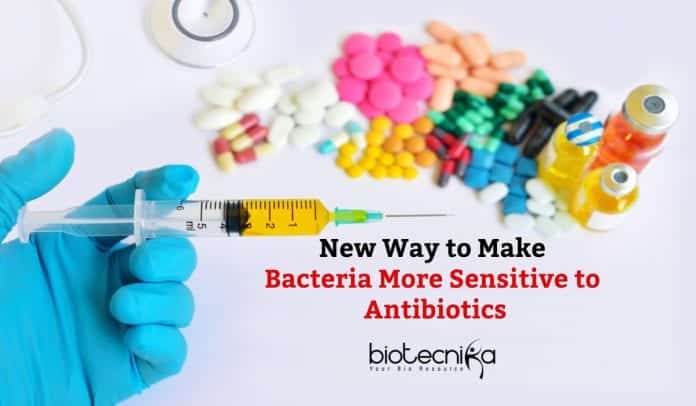Making Bacteria More Sensitive to Antibiotics – SMART Researchers
A new way to reverse antibiotic resistance in some bacteria using hydrogen sulfide (H2S) has been discovered by researchers at MIT’s research enterprise in Singapore, the Singapore-MIT Alliance for Research and Technology (SMART).
With a projected 10 million deaths each year by 2050 if no action is taken, one of the major threats to the world is the growing antimicrobial resistance. According to the World Health Organisation, the drug-resistant disease could cause catastrophic damage to the world economy and force up to 24 million people into extreme poverty by 2030.
H2S has been speculated as a universal defense mechanism in bacteria against antibiotics because the production of endogenous H2S has been shown to cause antibiotic tolerance in most bacteria studied. This theory was tested by adding H2S releasing compounds to Acinetobacter baumannii – a pathogenic bacteria that do not produce H2S on its own, by a team of researchers at SMART’s Antimicrobial Resistance (AMR) Interdisciplinary Research Group (IRG). They found that the exogenous H2S sensitized the pathogen A. baumannii to multiple antibiotic classes, rather than causing antibiotic tolerance. Even the resistance acquired in the pathogen A. baumannii to a very common
antibiotic used to treat several types of infections, gentamicin, could be reversed.In the journal Frontiers in Microbiology, their paper with the results of their study titled “Hydrogen sulfide sensitizes Acinetobacter baumannii to killing by antibiotics” was published, and the study was supported by the Singapore National Medical Research Council’s Young Investigator Grant.
The Principal Investigator at SMART’s AMR IRG and the corresponding author of the paper, Dr. Wilfried Moreira said, “Hydrogen sulfide was considered as a universal bacterial defense against antibiotics until now. We are the first to show that H2S can even reverse antibiotic resistance in bacteria that do not naturally produce the agent along with improving sensitivity to antibiotics.”
The scientists believe the results will be mimicked in all bacteria that do not naturally produce H2S though the study focused on the effects of exogenous H2S on A. baumannii.
Laboratory Technologist at SMART AMR and lead author of the paper, Say Yong Ng said, “Acinetobacter baumannii poses a huge threat to human health and is a critically important antibiotic-resistant pathogen. Our research can provide a breakthrough in treating many drug-resistant infections as we have found a way to make the deadly bacteria and others like it more sensitive to antibiotics.”
In order to extend these findings to other bacteria that do not produce H2S and to validate them in pre-clinical models of infection, the team plans to conduct further studies.
Source
SMART Researchers Making Bacteria More Sensitive to Antibiotics In A New Study
































